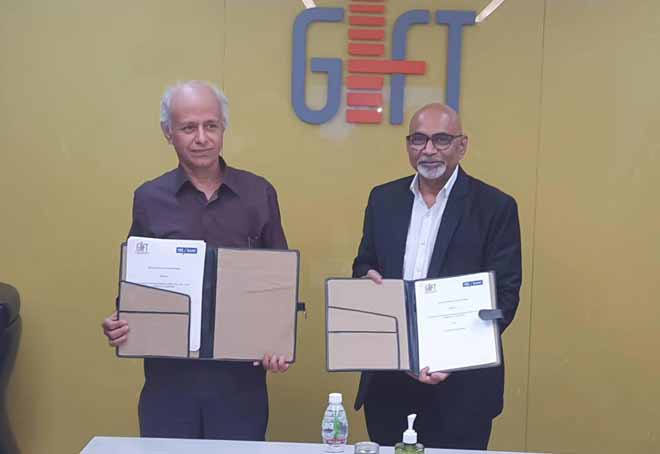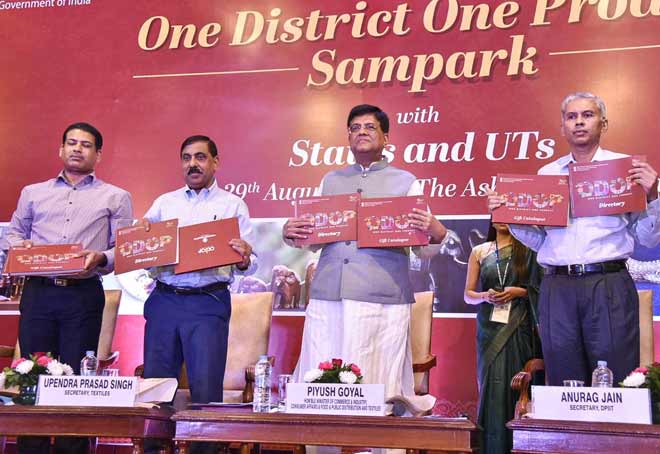Green building rating systems encourage adoption of energy efficient practices
Updated: Oct 08, 2015 01:22:13pm

However, “many initiatives, including the BEE’s ECBC program (Bureau of Energy Efficiency’s Energy Conservation Building Code), appliance rating program coupled with star rating of buildings, Green Building ratings systems amongst others have encouraged adoption of energy efficient best practices over the past few years,” said an official fact sheet on energy conversation and building codes.
The commercial sector promises to offer energy savings to the tune of 30 per cent through technology retrofits, thereby unlocking huge amount of energy re-source from the load end, it added.
Since most buildings have nearly the same type of electrical stock, the energy efficiency retrofits for the standard equipment inventory can be institutionalized. These standard inventory items, can be suitably retrofitted with energy efficient options using finances arranged by Energy Service Company (ESCO) on a deemed savings model with annuity repayment to ESCO.
As far as ongoing projects are concerned, in order to conserve power, EESL (Energy Efficiency Services Limited) has launched several projects across the country. EESL and CPWD (Central Public Works Department) have agreed to work on 3 buildings namely IP Bhawan, Nirman Bhawan and Niti Aayog in New Delhi. Other buildings like BCC&I Building in Kolkata, St. Xaviers, Secretariart and Vidyut Bhawan Building in Rajasthan, High Court, Bhiwandi Municipal Office, Pune Municipal Office, CPIR Kolhapuri Hospital, Saint George Hospital etc in Maharashtra have also been taken by EESL for its energy efficiency initiative.
The Energy Conservation Building Code (ECBC) was launched in May and is presently in vogue on voluntary basis. The ECBC sets minimum energy standards for new commercial buildings having a connected load of 100 kW or contract demand of 120 kVA. BEE is promoting the implementation of energy efficiency measures in existing buildings through Energy Service Companies (ESCOs) which provide an innovative business model through which the energy-saving potential in existing building can be captured and the risk faced by building owner can also be addressed.
In order to promote a market pull for energy efficient buildings, Bureau of Energy Efficiency has developed a voluntary Star Rating Programme for buildings which is based on the actual performance of a building, in terms of energy usage in the building over its area expressed in kWh/sq. m/year. Currently, Voluntary Star Labelling programme for 4 categories of buildings (day use office buildings/BPOs/Shopping malls/Hospitals) has been developed and put in public domain.
Highlights of ECBC
· The objective of the ECBC component is to make 75 per cent of all new starts of commercial buildings ECBC compliant by the end of the 12th Plan period and to reduce energy consumption of 20 per cent of the existing commercial buildings through retrofits.
· The estimated savings in energy use in new and existing buildings over the Business as Usual (BAU) scenario is estimated to be 5.07 BU during 12th plan.
· To meet the targets of 12th Plan, several activities have been proposed like adoption and facilitation for ECBC implementation, development of test standards for building components, support for creation of building material testing laboratories, capacity building and creating a cadre of ECBC professionals through a testing and certification programme, training and capacity building programmes for various stakeholders. Additionally to improve energy efficiency in existing buildings retrofitting and Star labelling of commercial building would be continued.
· Consequent to the development of Energy Conservation Building Code (ECBC) by BEE for all new commercial buildings with a connected load of 100 kW and above, its adoption and enforcement lies with the State governments and urban local bodies through notification within their states.
· More than 160 buildings under different categories have so far been labelled under Star Rating Programme for buildings based on its actual performance.
· ECBC has been notified in Rajasthan, Odisha, Uttarakhand, Punjab, Andhra Pradesh, Telangana, Karnataka and UT of Puducherry. Further, Uttar Pradesh, Kerala, Gujarat, Tamil Nadu, Haryana, Chhattisgarh, Maharashtra, West Bengal, Himachal Pradesh, Bihar and Madhya Pradesh are in the process of notifying the ECBC. (KNN/PIB)











